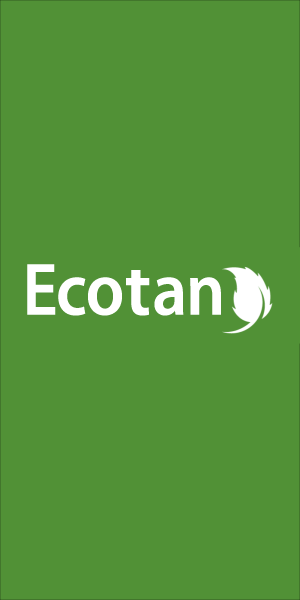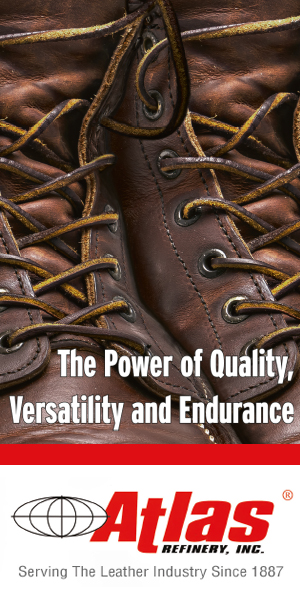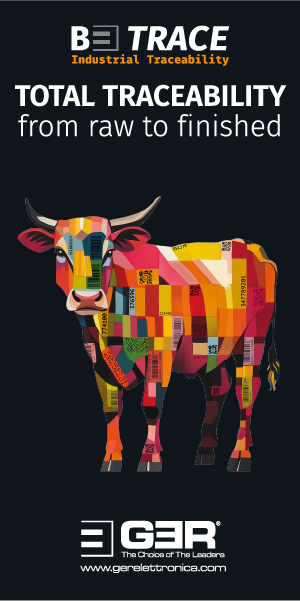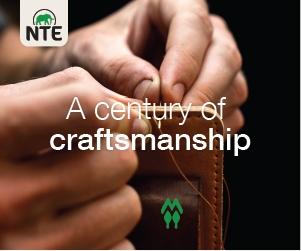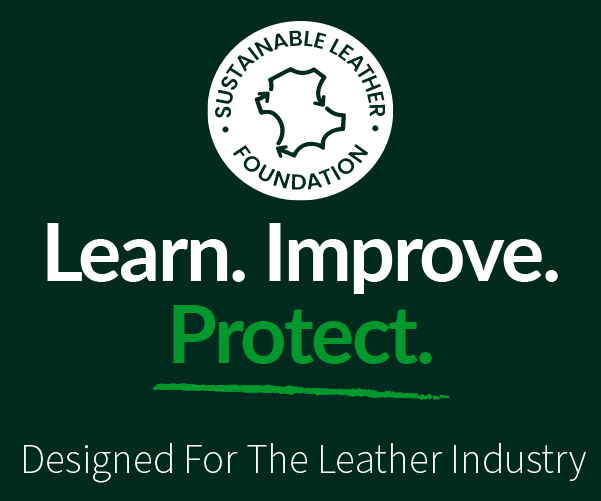Henan Prosper, Mengzhou, Henan Province

Specialist sheepskin tannery Henan Prosper has ambitions to be one of the biggest and most successful producers in the world of leather from this raw material. Beyond that, it is manufacturing and bringing to market a wide range of footwear under various own-brand names some of which it hopes to float on the stock market within five years. The company insists it will survive and thrive after the major changes to the Chinese tanning industry that have begun in 2014.
Henan Prosper has its roots in sheepskin. It was formed in 1994 from a smaller tannery called Feng Da in an area with a large Muslim population and a high level of mutton and lamb consumption. Skins were available and an entrepreneur in the small town of Sanpo, Hepin Wong (whom everyone at Henan Prosper refers to as Boss Wong), was one of the people who set up businesses to produce leather from them. In recent times, it was still a common sight to see people in Sanpo carry out fleshing by hand by the roadside.
Boss Wong’s specialism quickly became footwear lining for customers in Russia. However, there were some restrictions in the early 1990s on imports of materials and exports of leather and, to help him fulfill his ambitions, he invited a rising local business star, Michael Lyu, to become his partner. This led to a move to Mengzhou and the setting up of the company we know today, with its capacity to process 15 million pieces of sheepskin per year.Henan Prosper has gone through a number of phases in its development so far. The first four years constituted a start-up period. Production capacity reached one million pieces annually, mostly from Australian skins, but it was spread across three sites: the old Feng Da tannery, the new one in Mengzhou and a site in the east of Henan province sub-contracted to keep up with demand.
After 1998 and economic crises in Asia and in Russia, the company realised that it needed a wider range of products and a more diverse spread of customers. By 2002, Henan Prosper was selling sheepskin leather for applications as varied as car-seat covers and paint-rollers and it had begun to produce what would prove to be its most important product of all, footwear uppers from double-face, with wool on the inside and the flesh side of the leather on the outside. It had customers in the US, Australia and throughout China, as well as in Russia and the rest of Europe.
At the end of 2002, the company decided to build a new tannery at its site in Mengzhou, with production beginning in October 2003. At this point, the site covered an area of 100,000 square-metres, including a newly built effluent treatment plant, and had a capacity to handle 10,000 skins per day. Expansion has continued and the facility now covers 800,000 square-metres and the effluent treatment plant is being completely rebuilt, with an investment of around $30 million. Vice-general manager, Mark Ma, says an effective effluent treatment plant has been integral to the project from the outset, which is one of the reasons why Henan Prosper feels completely unthreatened by the recent round of closures of tanneries in China for poor environmental practice.
“We have always known that to be able to guarantee sustainable supply we will have to meet all requirements in this area,” Mr Ma adds. “This will be the fourth generation of our effluent treatment plant.” He recalls “the old days” in Sanpo where something like 130 small-scale tanners used a common effluent treatment plant. “Even then there were problems and the local authority would frequently cut power supplies in an attempt to limit leather production.” He says this made Michael Lyu determined to be independent, to keep to all the rules and to anticipate what future requirements would be, reading avidly, thinking deeply and asking widely about what was going on outside China. “He knew that, one day, we would feel the same pressures in China as tanners in Europe have faced,” Mr Ma continues.
In keeping with its spirit of independence, Henan Prosper has its own power station now (for steam production) and the site is close to a network of reservoirs the local authorities have built with water from the Xiao Lang Di dam on the Yellow River, 40 kilometres away. Construction is under way on a new, extended wet-end unit for Henan Prosper, which will have the capacity to process 46,000 wool-on skins per day, a 50% increase on the current production capacity. Starting from soaking, the tannery will aim to recycle much of the water it uses in production when the new set-up is in place. Other ideas include Eco-Tan, an in-house-developed tanning system that uses less chrome, less water and fewer chemicals.
Attractive material
Henan Prosper received its first orders for double-face sheepskin in 2003, when footwear group Deckers Corporation asked it for 70,000 square-feet for its most famous brand, UGG. With this, a new phase in the tanning company’s development began. This side of the business built up rapidly between 2004 and 2008 and another big global name, Ikea, also became a customer, using Henan Prosper sheepskin in rugs. Turnover doubled, or close to it, every year and even the start of the global economic downturn in 2008 could not halt this. Production capacity doubled to 20,000 skins a day and the tannery began to source New Zealand sheepskins to supplement those from Australia. Soon, even this was not enough to meet production demands and the Henan Prosper sourcing team turned its attention to Europe too.
During a visit to Catalonia in 2008, Michael Lyu learned that one of the most prominent nappa and garment double-face tanners in the world, Vic-based Colomer, wanted to set up a joint-venture in China with a local business partner. They went ahead together, resulting in a second, separate tannery at the Henan Prosper site. The two facilities are about 1,000 metres apart with the Colomer plant concentrating mostly on fell-mongering, removing the wool before tanning the skin, as opposed to the mainly wool-on production on the Henan Prosper side. The Colomer family was long-retired when the joint-venture got up and running, and the Spanish company that began processing sheepskins in the 1790s was, by this time, in the hands of a group of investors. When Mr Lyu asked them to increase their investment to take the new joint-venture further, they were reluctant to put more money in, so he bought them out, including the brand name, with the proviso that technicians from Spain would continue to travel to Mengzhou to continue a process of knowledge-transfer that had begun with the joint-venture. This is ongoing.
The acquisition of Colomer marked the start of a fourth phase in the history of Henan Prosper; it meant the small tannery that grew out of Boss Wong’s hand-fleshing operation in Sanpo was now a multi-national group. And, as a group, Henan Prosper decided it could and would start making finished products of its own, including shoes, boots and bags under a brand name it has registered, Cozy Steps. Cozy Steps boots are made from double-face sheepskin in an on-site facility that also makes UGG boots and Deckers is content with the arrangement, Michael Lyu says. Deckers chief executive, Ángel Martínez, has visited the plant, and Mr Lyu says they have an open arrangement under which he can visit Deckers head office in California any time he wants to. Openness and honesty have governed the relationship all the way, he insists.
The in-house brand is growing, making a name for itself in the domestic Chinese market in particular. A huge investment in direct soling technology from Desma in Germany to inject polyurethane and thermoplastic polyurethane soles straight onto uppers in a highly automated production line is about to transform the footwear production side of the business. When the new Desma production line is in operation, which may be as soon as August 2014, footwear manufacturing capacity will increase rapidly. Within three years, its target is to produce 2.5 million pairs of boots with double-face uppers per year and another 2.5 million pairs of shoes using the Desma technology. It says it is almost hitting the double-face target already, with around 50% of the boots being produced for UGG. With direct soling, the company will make shoes with uppers made from grain leather and become less reliant on the double-face look. New brand names will follow: Rich Steps for the Desma-soled shoes with grain uppers and, possibly, a new use of the Colomer brand name for a range of high-end formal shoes for men. There is also an intention to float one or more of these brands on the stock market.
Travel broadens the mind
As well as travelling far and wide to source sheepskin (vice general manager, Mark Ma, has even been to the most southern parts of Chile in the South Atlantic), Michael Lyu says he and his team are enthusiastic gatherers and retainers of all the market information they pick up, which means that he feels Henan Prosper is in a good position to analyse what is happening in the raw materials market for skins. “This is important because that’s where a lot of your profit margin is,” he points out.
A summary of his assessment of the way the market works is that all abattoir people in Australia like to remain “stone-faced” because of their practice of auctioning material day by day. In New Zealand, by contrast, everything works on contracts. He describes his relationships with raw material suppliers there as “a little bit more long-term”, adding that especially high levels of probity and honesty among suppliers in New Zealand make this possible. In the UK, the market has, traditionally, been dominated by a small number of big players, centered on West Yorkshire, whose association with the wool trade goes back centuries. “That’s why we have set up our European headquarters there,” Mr Lyu explains. “We have an office close to Leeds and a warehouse too.” Following its acquisition of Colomer, his group’s European operation was run from Barcelona, but Henan Prosper has changed that now, moving its base to the UK instead. “We have our own people there and will build up a collection of warehouses,” the chief executive continues; “sourcing people are very important.” For this reason, Henan Prosper has sourcing professionals in place in France and Spain too, as well as in the Americas.
Raw material at risk
“Sheepskin is different from hides, from a sourcing point of view,” Mr Lyu insists. “It [sheepskin] is certainly not a commodity; it’s more risky because preservation of the material is a big issue. The solution is to go to crust quickly, but to do that, you have to know what your customer will want at finished stage, you have to know what’s happening in the market, you have to know what material is right for you and your customers, and know what you can use each different type of material for.”
He believes his company has a big opportunity to become dominant in the supply of sheepskin leather because, on the positive side, it has funding, it pays its suppliers on time, it knows what is happening and it knows what its customers want, he says. It insists that suppliers come and visit the tannery to see its operation for themselves, and it has a good reputation.
One of the reasons for Michael Lyu’s optimism about the size of his company’s opportunity in the years ahead is that the environmental pressures tanners in China have come under in recent years, leading to a string of closures in 2014, are not going to go away. Henan Prosper’s policy has been to follow government regulations and to have high levels of transparency throughout its operation. It decided years ago, the chief executive says, that investing heavily in a high-tech effluent treatment plant was not just good policy, but an obligation, a duty to future generations. “We told people this years ago,” he continues. “There was a time when we had laws about this, but the way the law worked was the Chinese way, with some people in authority abusing their power. This has changed. We have always done things differently, hiring lots of consultants from outside China to show us the best way to do things and following their advice on the best way to meet all our environmental obligations. We knew that, in the long run, keeping to the rules would prove successful.”
Talk ends, action starts
He goes on to explain that the tannery closures in 2014 are a sign that what the central, provincial and municipal governments have been saying for years about environmental care is “no longer all talk”. There are increasingly demanding laws coming into force across China on waste and water management. “You will break the law if you don’t keep to the rules now,” Mr Lyu insists; “you can go to jail.” His view is that only “real tanners”, those who want to work sustainably, who are able and willing to meet rising costs for effluent treatment, to pay their workers well, to invest in innovation and in research and in technology will survive. In his opinion, this means as many as 85% of tanneries operating in China at the moment (the China Leather Industry Association confirmed a total of 1,800 at the end of 2011, but suggested the figure was likely to be 1,500 by the end of 2014) will be forced to close. “Chinese tanners are in a fight for survival,” he continues, “and the mentality has to change. All the short-cuts, all the so-called clever ways of getting round our obligations…those days are gone.”
He has the idea that some tanners in China have “sacrificed the environment” to stay competitive, but insists that only serious investment in automation and clean technology will allow anyone to remain competitive in the long run. “There are operations in Italy that can process with 20 people what we process with 120,” he continues. “This is very important. In time, tanning costs in Italy will be cheaper than in China.”
In everyone’s interest
The Henan Prosper chief executive says he has no objection to paying his people well, including extra for living allowances, pension funds and to make sure people have televisions, air conditioning, the internet and other services. “People need a life,” he continues. “In China today food is not an issue any more. Food is taken care of, but people now want to own their own cars. So it’s in their interests to work hard and earn more and I approve. If you protect other people’s interests, you protect your own interest.”
After more than 30 years in the woolskin tanning industry in his native New Zealand, Andrew Bowron, with his wife, Sheron, has been working as a consultant with Henan Prosper since 2002, helping it build up its product range to today’s offering. Between 50% and 60% of the skins it processes go into double-face for UGG and Cozy Steps boots. Then there is a mouton product, for which, in contrast, the wool goes on the outside and the skin on the inside. It’s used in coats as a good alternative to fur and is very popular in markets where the winter is cold, especially Russia. Skins for rugs, rollers and covers for car seats, wheelchairs, bedding and childcare products complete the list. One of the things that has impressed Mr Bowron in the time he has spent helping to shape and observing the development of the business in Mengzhou is the skill with which people on the tannery floor are able to grade skins, quickly and accurately. Grading takes place at a number of stages throughout the production process, allowing the Henan Prosper team to make decisions on the best type of product each skin should be used for: from double-face at the top end, footwear lining at the opposite end and everything else in between. “Michael often says that it’s the dirty-handed people that make this company,” Mr Bowron explains. “You have to band-knife the wool just right for each product. You have to get it right because you have to get the right return on the wool and on the skin, with no waste at all, to be able to get the right return on the raw material.” At the moment, the tannery is producing and selling 30 tonnes of wool per day.
Life and laughter
Situated in an industrial zone 20 kilometres to the west of the city of Mengzhou the tannery is in a quiet area, but there are plenty of things on site to keep people happy, including an impressively large and well equipped gym, a table-tennis room with four tables, a basketball court, snooker and pool tables, grocery stores, a library, a yoga room with regular classes, two lecture theatres, a karaoke room and even a sauna. Many of these amenities are housed within the company’s own 250-room hotel, which provides accommodation for management and guests. There are also eight workers’ dormitories, housing up to 4,000 people in total. There are also two clinics, each with its own doctor and nurses on site.
Across the group, there are 7,000 workers at the moment, not all of whom live on site. Shuttle buses go every day between the tannery and nearby urban areas. Initiatives to assist them include a fund set up in 2005 to help employees send their children to university. In partnership with Ikea, the tannery has also donated money for school equipment in a nearby mountain village called Qian Shan: the Swedish furniture retail group pledges to match donations its suppliers make to projects like this. Large sums of money also went from Henan Prosper to relief funds for victims of earthquakes in Sichuan in 2008 and in Christchurch, New Zealand, in support of an initiative begun by a skins supplier there, in 2011.
One of the reasons Michael Lyu says he would like to make Henan Prosper a public company is that this would enable it to create more wealth and contribute more to society. “I think this will happen within five years at the most,” he says. “Our volume can double and, if the brand part goes well, we can become a billion-dollar company. We have the numbers and the quality. The cheap labour advantage is gone and production will move back to Europe, so we have to keep innovating and coming up with things such as Eco-Tan, which no one can touch. We have to keep doing this; we have no choice.”








